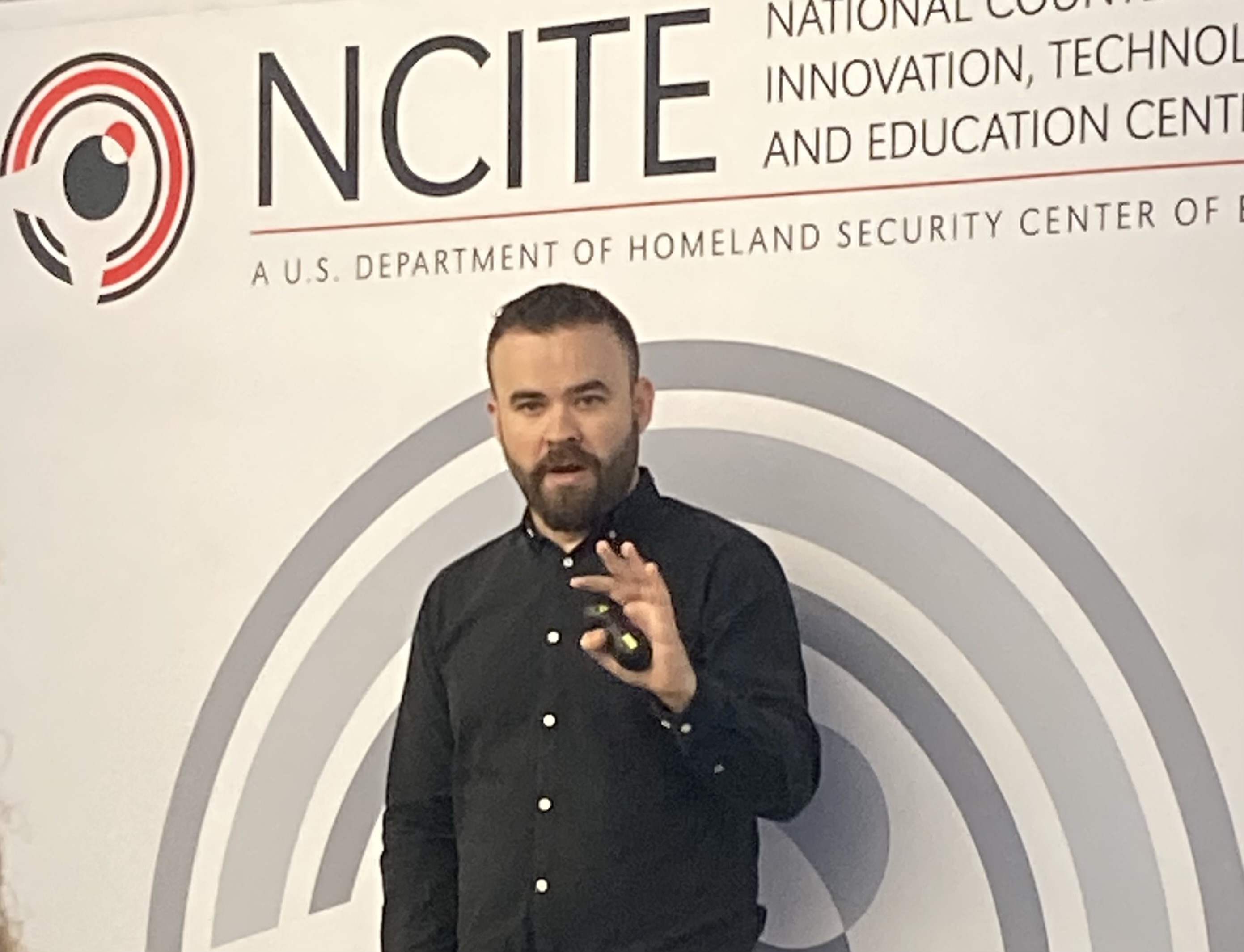Counterterrorism Researcher Paul Gill Visits NCITE
- published: 2022/08/30
- contact: NCITE Communications - NCITE
- email: ncite@unomaha.edu
- search keywords:
- paul gill
- counterterrorism
- ncite

By Eva Burklund (NCITE Student)
Beyond the curse of the banshee and the occasional irrational fear, very little keeps terrorism researcher Paul Gill awake at night.
“I'm safe in the knowledge that (in) the places where I work, the places my kids hang out in, that there are dedicated hard working professionals trying to keep public space safe,” said Gill, senior lecturer at University College London’s Department of Security and Crime Science. “My team goes above and beyond in terms of the hours we put in and in terms of the seriousness we take on. That goes for many of our research centers and places and practitioners.”
Gill, a father of two school-age children, focuses his research on lone-actor terrorism, threat management and risk assessment, radicalization, role profiles, the Irish Republican Army, the impact of counterterrorism, social network analysis, and psychopathological explanations of terrorist involvement. In August, he visited NCITE.
“When you see something like the Manchester bomb, that’s never going to leave you,” Gill said of the 2017 suicide bomb that killed 22 and wounded 59 after an Ariana Grande concert in Manchester, England. “When you meet parents of kids who died at Sandy Hook, that doesn’t leave you. Meeting victims' families has an impact. But you just use it as more fuel to do a better job. To do it bigger and better, work harder to prevent more families from having to go through that.”
Gill got hooked on research during one of his first classes as an undergraduate. A professor opened a lecture by explaining what his job was as a researcher, and “I thought, ‘Wow,” Gill said.
To him, watching some other professors lecture to an attentive audience was more like “going to the theater.” This excited him, and he decided to stick around researchers for as long as he could, even though he didn’t believe he would become one as he slogged his way through undergraduate work.
However, he did wind up pursuing academia and earned his Ph.D. in political science in 2009. This occurred as the Irish economy was crashing, affecting the availability of jobs in academia in Ireland. After receiving many rejections from potential employers, Gill became a post-doctoral research fellow at Pennsylvania State University’s International Center for the Study of Terrorism.
Gill then came to his current position in London. While he originally wanted to become a professor, he found his passion in research.
“Seeing that first day of results — it’s a buzz, writing projects, having that blank whiteboard, and sketching out what a project can look like ... And then you win the grant, and it’s three weeks of absolute dread and anxiety now that you actually have to go do this,” Gill said. “Yesterday we got a paper accepted in a journal. And every single time, it doesn’t matter what the outlook was, how easy or hard the paper was, I’ll still get that buzz.”
If that buzz ever goes away, he said, “then I’ll probably just know that I’m done and get out ... Because that’s what we’re all here to do, to improve the knowledge base, improve practice, lessen harm, all that type of stuff.”
Other parts of the job that he enjoys are seeing people’s careers grow and collaborating with people who have different skillsets and expertise — including those outside of academia.
“It’s always an honor when you see that your research has an audience, that people are taking interest,” Gill said. “It’s sort of a sign that you’re doing things right. So, when particular audiences take interest in it, and they want it to help shape policy practice, you’ve likely done research that’s at a robust enough standard, and your credibility goes before you. You’ve also found ways of communicating the research beyond fellow scientific audiences, which is another challenge in and of itself. So, you’re doing something right.”
After doing research in the counter-terrorism community for more than a decade, his advice for young researchers is that “perfectionism is the enemy of done.” Also, learn how to say no, and do the things that excite you. Just as important, though, is to not fear rejection.
“You’re only as good as your last paper, you just can’t take anything for granted,” Gill said. “In an academic career you are going to get a lot of rejections. On the market you’re going to get a lot of article rejections, you’re going to apply to conferences and get rejections, it’s like part of the process and you have to take that. The main thing is that they’re not tattoos, they’re not going to come around with you for the rest of your days. Don’t shut down because of it.”